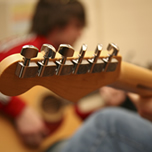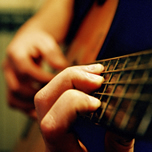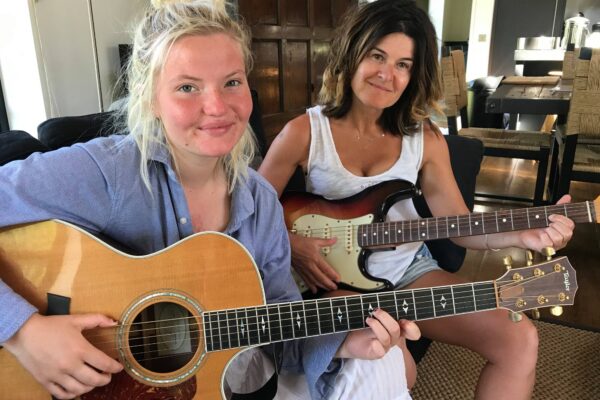
Mastering Guitar at Home
Practice Makes Perfect: Mastering Guitar at Home
Achieving proficiency in guitar playing, especially in blues and jazz, requires disciplined practice. Whether you’re working through our Blues Guitar course or exploring our music production offerings, effective practice habits are essential for growth. Here are our top tips for practicing guitar at home, covering everything from time management to goal setting and maintaining motivation.
1. Mastering Guitar Set Clear Goals
Before you begin, define what you want to achieve. Goals provide direction and motivation. Whether it’s mastering a blues scale, learning a jazz standard, or improving your improvisation skills, having specific objectives will keep you focused. Break down larger goals into manageable milestones to track your progress.
2. Establish a Routine
Consistency is key. Aim to practice at the same time each day to build a habit. Even 20-30 minutes of focused practice can yield significant results over time. For more advanced players, 45-60 minutes daily, divided into segments (e.g., warm-up, technique, repertoire, and improvisation), can be highly effective.
3. Warm-Up Exercises
Start with warm-up exercises to prepare your fingers and hands. Simple chromatic scales or finger stretching routines can prevent injury and improve dexterity. This step is crucial, especially if you’re working on complex blues riffs or intricate jazz chords.
4. Focus on Technique
Technique is the foundation of good playing. Spend time on finger placement, picking accuracy, and timing. Use a metronome to develop a strong sense of rhythm. For blues and jazz, practice different picking styles, including alternate picking and fingerstyle, to enhance your versatility.
5. Learn and Apply Theory
Understanding music theory can significantly improve your improvisation skills. Study scales, chord progressions, and their applications in blues and jazz. Practice improvising over backing tracks to apply theoretical knowledge in a musical context.
6. Record and Review
Recording your practice sessions allows you to evaluate your playing objectively. Listen for areas of improvement and track your progress. This feedback loop is invaluable for refining your technique and style.
7. Stay Motivated
Maintaining motivation can be challenging. Mix up your practice routine to keep it interesting. Play along with your favorite songs, explore new genres, or collaborate with other musicians. Set short-term rewards for achieving your goals to stay inspired.
Practicing guitar at home can be highly rewarding with the right approach. By setting clear goals, establishing a routine, focusing on technique, learning theory, recording your progress, and keeping yourself motivated, you’ll make consistent strides in your playing. Our Blues Guitar course, along with our music production offerings, provides the perfect foundation to develop your skills and achieve musical excellence. Remember, practice makes perfect!
Mastering Guitar: 10 Essential Tips for Rapid, Effective Progress
Mastering the guitar requires dedication and smart practice. Here are ten essential tips to help you achieve rapid and effective progress.
1. Set Clear, Achievable Goals
Establishing specific, attainable goals gives you a clear path to follow. Whether it’s learning a new song, mastering a scale, or improving your fingerpicking technique, having defined objectives keeps you focused and motivated.
2. Practice Regularly
Consistency is key. Aim to practice daily, even if only for 15-30 minutes. Regular practice helps reinforce muscle memory and accelerates skill development.
3. Use a Metronome
Playing with a metronome improves your timing and rhythm, which are crucial for any guitarist. Start slow and gradually increase the tempo as you become more comfortable with the piece you’re practicing.
4. Break Down Songs into Sections
Tackling an entire song at once can be overwhelming. Break it down into manageable sections, such as the intro, verse, chorus, and solo. Master each part separately before piecing them together.
5. Focus on Technique
Good technique is the foundation of effective guitar playing. Pay attention to your finger placement, picking hand position, and posture. Practicing scales, arpeggios, and chord changes with proper technique enhances your overall playing ability.
6. Learn Music Theory
Understanding music theory helps you make sense of what you’re playing. Study scales, chord progressions, and key signatures. This knowledge is invaluable for improvisation and composition.
7. Record Yourself
Recording your practice sessions allows you to hear your playing from a different perspective. It helps identify areas that need improvement and track your progress over time.
8. Play Along with Backing Tracks
Playing with backing tracks simulates the experience of playing with a band. It improves your timing, feel, and ability to improvise. Numerous online resources offer backing tracks in various genres and keys.
9. Seek Feedback and Learn from Others
Don’t hesitate to seek feedback from more experienced guitarists or teachers. Join online forums, participate in local jam sessions, or take lessons. Learning from others accelerates your progress and broadens your musical perspective.
10. Stay Motivated and Have Fun
Maintaining motivation is crucial for long-term progress. Set short-term rewards for achieving milestones. Explore different genres and styles to keep your practice sessions exciting. Remember, the most important aspect of learning guitar is to enjoy the journey.
Rapid and effective progress on the guitar is achievable with the right approach. By setting clear goals, practicing regularly, focusing on technique, understanding music theory, and staying motivated, you’ll see significant improvements in your playing. Incorporate these tips into your practice routine, and watch your guitar skills soar.







